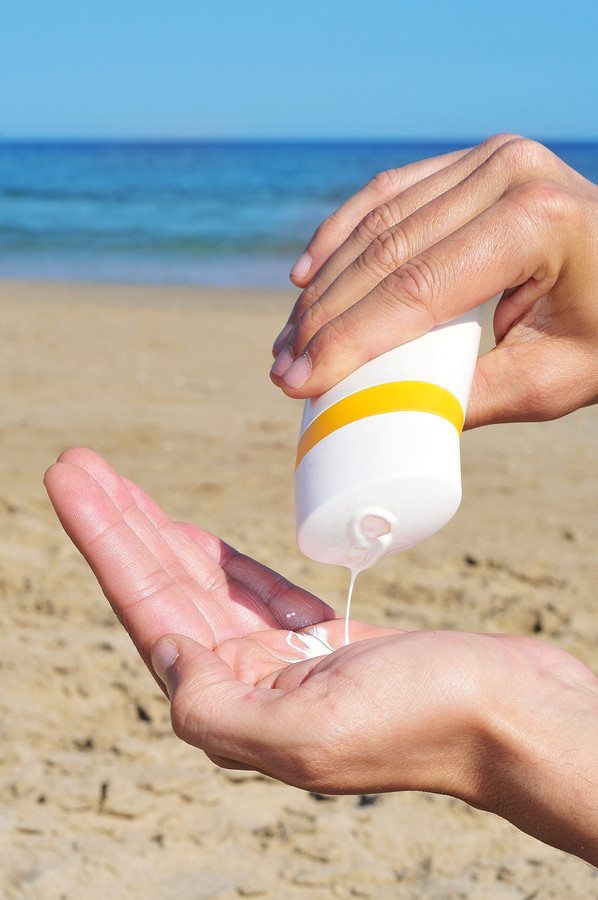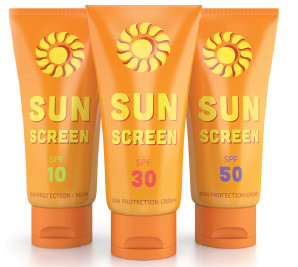
What are somatic workouts?

How to curb your stress eating

How to spot Parkinson’s disease symptoms

8 simple ways to reduce ultra-processed foods in your diet

Heart failure symptoms in women: How they’re different

GERD diet: Foods to avoid to reduce acid reflux

Strong is the new skinny

Everyday habits that sneakily weaken your bones

Don’t wait to get help for back pain

Correcting how you walk may ease osteoarthritis knee pain
Skin and Hair Archive
Articles
Survey finds men don't use enough sunscreen
The best way to prevent skin cancer is to use sunscreen to reduce lifetime exposure to the sun's damaging rays. But some men may not be heeding the gospel of sun protection, according to a report in the Journal of the American Academy of Dermatology.
Analysis of data from a 2013 national survey showed that less than 15% of men, compared with 30% of women, said they regularly used sunscreen on both the face and other exposed areas, such as the back, arms, and legs.
Treating melanoma
If a growth or mole looks like a melanoma, the doctor will take a biopsy to confirm the diagnosis. This entails removing either a sample of tissue or else the entire growth and some surrounding skin, and examining the tissue under a microscope to determine whether it's cancer. Depending on how deep a melanoma is, additional tissue may have to be removed. In some cases, lymph nodes may be removed, too. A procedure called sentinel node biopsy can show whether the lymph node nearest the tumor contains any cancer cells. If it does, surgery to remove additional nodes right away can improve survival.
In addition to surgery, treatments for melanoma include immunotherapy (which strengthens the immune system against the cancer), chemotherapy, and radiation therapy. Newer, so-called targeted treatments include drugs that target specific genetic changes seem in people with certain forms of melanoma. For example, about half of melanomas have genetic changes (mutations) in a gene called BRAF, which signals melanoma cells to grow and divide quickly. Drugs that inhibit BRAF, such as vemurafenib (Zelboraf ) and dabrafenib (Tafinlar), and related proteins are now available.
When medications make you sensitive to sunlight
Avoid sun exposure or wear sunprotective clothing and sunscreen if you’re taking photosensitizing drugs. Image: Thinkstock |
Wear sunscreen, and avoid direct exposure to the sun.
Protect your skin from the sun
A strong sunscreen and sun-protective clothing can help keep you safe this summer and every day of the year.
With summer here, it's time to reach for the sunscreen. But not everyone is convinced that skin protection is a necessity. "Older adults grew up at a time when unprotected skin exposure wasn't a cardinal sin, and many I talk to think a little sun is good for them. But older adults are actually at an increased risk for skin cancer, since their skin is no longer able to repair damage as efficiently as it once did," says Dr. Oon Tan, a dermatologist at Harvard-affiliated Massachusetts Eye and Ear Infirmary.
Heart disease risks common in people with eczema
Eczema, an itchy, scaly skin disease that usually starts early in life, may make people more prone to heart disease and stroke, according to a study in the Jan. 8, 2015, Journal of Allergy and Clinical Immunology.
Researchers relied on data from more than 61,000 adults who took part in the 2010 and 2012 National Health Interview surveys. They found that people with eczema smoke and drink more and are less likely to exercise than people without the disease. (Sweating aggravates eczema, making exercise a challenge.) Other factors that boost heart disease risk—such as severe obesity, high blood pressure, and high cholesterol—were also more prevalent among people with eczema. So were sleep disturbances, which were linked to even higher odds of having those risk factors.
Healthy travel: Don't let this common hazard spoil your best-laid plans
Long road trips also carry a risk of deep-vein thrombosis. Take a break to stretch your legs every hour or so. Image: Thinkstock |
Long trips come with an increased risk of blood clots deep in the leg veins, which can have serious complications.

What are somatic workouts?

How to curb your stress eating

How to spot Parkinson’s disease symptoms

8 simple ways to reduce ultra-processed foods in your diet

Heart failure symptoms in women: How they’re different

GERD diet: Foods to avoid to reduce acid reflux

Strong is the new skinny

Everyday habits that sneakily weaken your bones

Don’t wait to get help for back pain

Correcting how you walk may ease osteoarthritis knee pain
Free Healthbeat Signup
Get the latest in health news delivered to your inbox!
Sign Up







